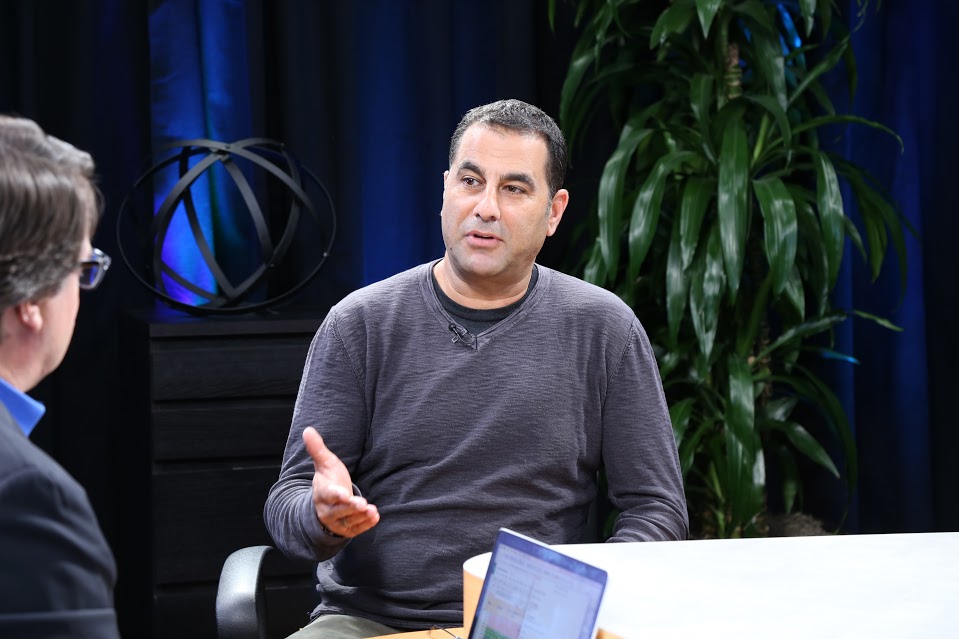 APPS
APPS
 APPS
APPS
 APPS
APPS
When it comes to making a list of major advances that have furthered the digital revolution, open-source software would likely be near the top. But open source has one drawback for developers. The documentation for how software and services were built, including licenses, is often contained in binaries that can be a challenge to manage and distribute.
JFrog Ltd. has jumped into the problem with a solution that offers both a distribution platform (Bintray) and a private online repository (Artifactory) for the care and feeding of binaries. “We manage them, host them, distribute them and secure them. When you need to automate, when you need to rebuild, when you need to release faster, you go down to the binary level,” said Shlomi Ben Haim (pictured), co-founder and chief executive officer of JFrog.
Ben Haim visited with John Furrier (@furrier), host of theCUBE, SiliconANGLE Media’s mobile livestreaming studio, at the SiliconANGLE studio in Palo Alto, California. They discussed JFrog’s repository solution, potential new applications for automation and the changing nature of the developer’s role in keeping pace with the speed of the enterprise.
JFrog’s offerings have met with a positive response from the development operations (or DevOps) community. The company has more than 4,000 customers (including Amazon, Google, Uber, VMware and Oracle), and reports over 2 billion downloads per month on its binaries hub.
Developer interest in JFrog may also be driven by timing. About four years ago, Google changed its policy for binary hosting and GitHub has made it harder to upload and store files (like binaries) separate from the source code.
“Instead of having an NPM repository, Docker registry, Maven repository,PyPi repository — and there is no single organization that will have just one repository — you can have it all with JFrog,” Ben Haim said.
The company is seeking to provide technology that recognizes the dynamic, flexible nature of software binaries in the DevOps world. A continuous integration server is churning out new binaries that must be managed and stored. “You use just a portion of it, but you have to host and manage all of it,” Ben Haim said. “Your source code is frozen; you’re not allowed to touch it; you’re not allowed to change it. Binaries are more like fresh food.”
JFrog’s work in the binary management field is also giving it a fresh look at potential new applications for automation. The firm’s acquisition pattern offers some insight into where it may be headed. After acquiring Conan (a C and C++ programming language package manager) in 2016, the company swallowed a second firm — continuous integration firm Dimon Inc. – in May of this year.
One month later, the company acquired CloudMunch, giving it new expertise in software delivery lifecycle analytics. JFrog may be taking dead aim at the one of the largest pain points in the software market today: the dreaded downloading and rebooting process for machine updates.
“The next big challenge of DevOps is how to create a continuous update machine which is also secure and software updates will just flow,” Ben Haim said.
Whether it’s automation, hosting or management, the nature of the software world today is based on speed. This has provided developers with new power in the IT universe as management relies on them more for the rapid response so often needed in a fast-changing business climate.
“The last five to six years, we’re seeing more developers educate their managers on how to do it and how to do it faster,” Ben Haim said. “This is what we say at JFrog: Release fast or die.”
Watch the complete video interview below:
THANK YOU